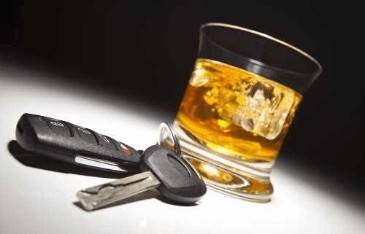The West Virginia Supreme Court of Appeals has ruled that citizens can be charged with a DUI even if they were operating a vehicle while intoxicated on private property. The High Court overturned a lower circuit court ruling that would have excluded drivers from being charged with driving under the influence on their private land. The WV Supreme Court has now ruled that a citizen who operates a “vehicle” on their private property can still be charged with drunk driving or drugged driving even if there was no imminent threat to public safety.
 Chief Justice Menis E. Ketchum II delivered the following Opinion of the Court:
Chief Justice Menis E. Ketchum II delivered the following Opinion of the Court:
“We hold that an individual may lose his/her driver’s license if they are found driving a vehicle anywhere within the physical boundaries of West Virginia while under the influence of alcohol (and/or drugs), even if the vehicle is driven only upon private property not open to the general public.”
Under WV DUI laws, a “vehicle” can include cars and trucks, motorcycles, and all-terrain vehicles (ATVs). The West Virginia Supreme Court reviewed the case of Joshua D. Beckett, who crashed his ATV while intoxicated on his family’s farm in Monroe County. A friend called 911 and Mr. Beckett was transported by ambulance to the nearest medical facility. An emergency medical technician observed that Mr. Beckett had been drinking, and at the hospital, a blood test measured his blood alcohol level (BAC) at 0.17 grams percent. In West Virginia, a BAC over 0.15 grams percent classifies the charge as a WV aggravated DUI.
A lower court dismissed the aggravated DUI criminal charge, but the WV DMV Commissioner suspended Mr. Beckett’s license for 45 days in a separate administrative action. Mr. Beckett requested a hearing with the Office of Administrative Hearings to challenge his administrative license suspension, but the administrative law judge rejected his argument and upheld the Commissioner’s revocation order.
Mr. Beckett again challenged the DMV’s administrative license suspension, and a WV circuit court judge agreed that a person cannot be charged with DUI on private property. The circuit court judge cited the 1980 WV Supreme Court ruling in West Virginia v. Ball. Now the WV Supreme Court has overruled the circuit court’s decision.
The statute under which Mr. Beckett was charged, W.Va. Code § 17C-5-2(e) [2010], criminalized being a “person who drives a vehicle in this State” while being under the influence (emphasis added). West Virginia Code § 17C-5-2a(a) [1983] provides the following definition of the phrase “in this State,” when it is used in a DUI statute:
“For purposes of this article [pertaining to criminal DUI] and article five-A [pertaining to administrative license revocation for DUI] of this chapter, the phrase “in this State” shall mean anywhere within the physical boundaries of this State.”
Chief Justice Ketchum wrote that the “physical boundaries of this State” includes all private property. This is a major change to WV DUI laws, and as you can see, the laws change constantly. That is why you need a well-informed WV DUI lawyer to represent you after your arrest. Harley Wagner has defended over 1,800 driving under the influence cases from Martinsburg to Charleston, and across the entire State. Harley will drive to your court location and vigorously represent you in both the criminal proceedings and the administrative hearing.
You cannot afford to lose your license for even 15 days, the current State minimum for a DUI arrest. If you were arrested on your own property and charged with non-aggravated DUI, aggravated DUI, or felony DUI, you must speak to Harley Wagner immediately.
